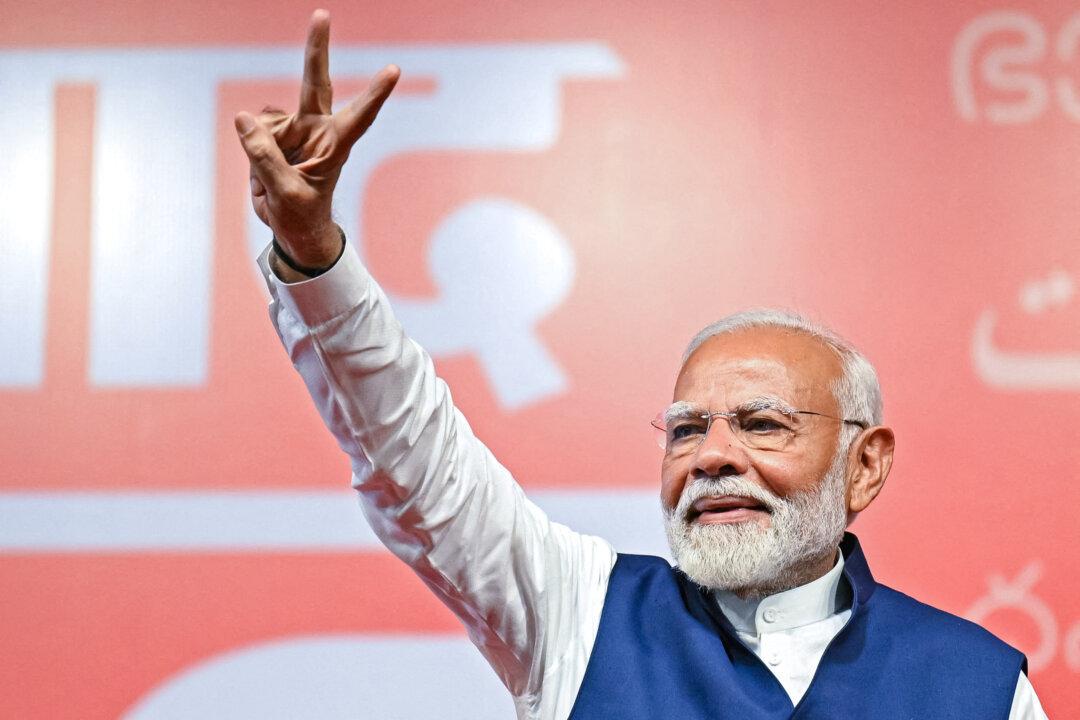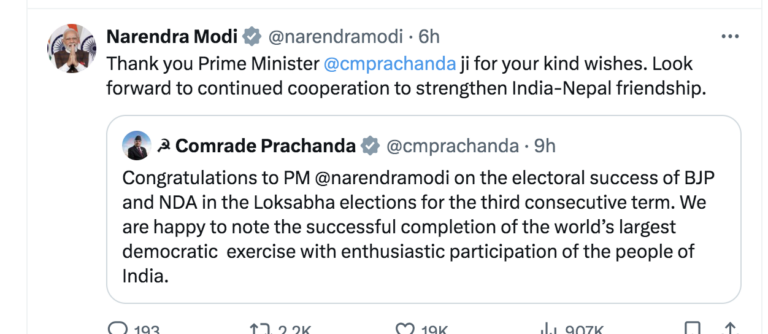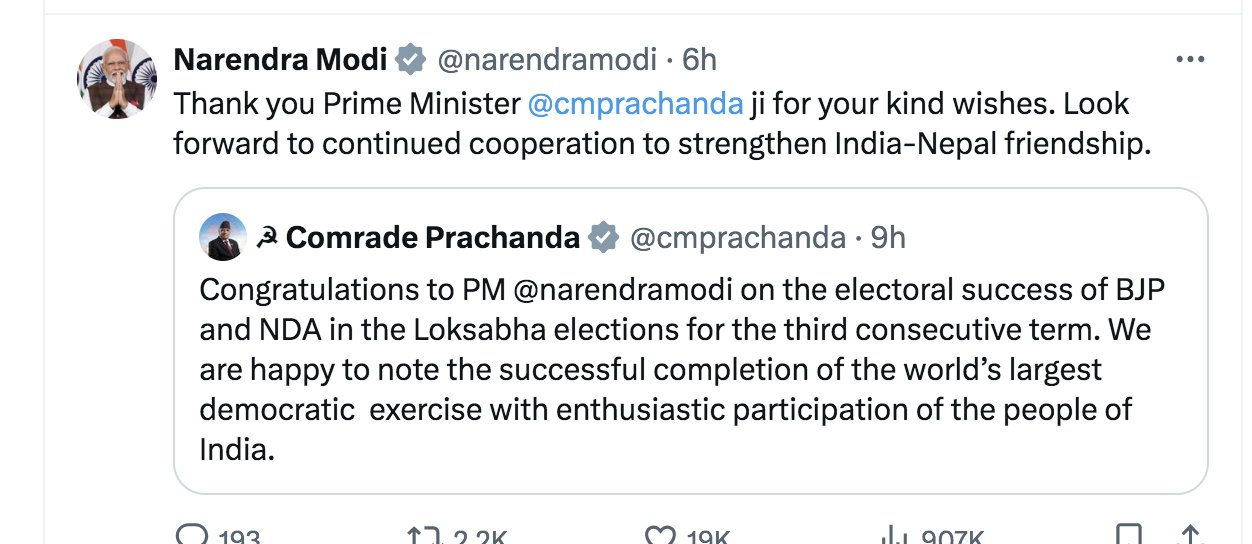
Modi Declares Election Victory as the BJP Suffers Surprise Losses
A Thin Majority
Kathmandu: Indian Prime Minister Narendra Modi is poised to secure a consecutive third term in office, the country’s Election Commission projected on Tuesday, making him the second leader to do so since the country declared independence in 1947. “This is a historical feat in India’s history,” Modi wrote on X.
But the worse-than-expected nationwide performance of his Bharatiya Janata Party (BJP) largely overshadowed the right-wing leader’s electoral victory. Commission results as of early Wednesday indicated that the BJP had secured 240 seats, falling well short of the 272 seats needed to secure a single-party majority in Parliament. That means that, for the first time since Modi took the helm a decade ago, the BJP will have to rely on smaller parties in the larger National Democratic Alliance, which with the BJP secured more than 290 seats combined, to form a coalition government.
This is also the first time that Modi has failed to secure a major majority in state or national elections since beginning his 23-year political career. “Modi is still popular. But what people saw in this campaign was not a leader, but an increasingly self-aggrandising figure, a prisoner of his own delusions of divinity,” Indian political scientist Pratap Bhanu Mehta wrote for the Indian Express on Tuesday.

Modi took office as prime minister in 2014 and has since pushed a Hindu-nationalist agenda to consolidate his power. He has targeted minority populations, undermined India’s commitment to secularism, and eroded the country’s free press and independent judicial institutions. Under his rule, India became the world’s fifth-largest economy and overtook China to become the most populous nation in 2023.
The BJP devoted a significant amount of time campaigning in key contested states—only to fall short of its predicted landslide wins. In January, Modi inaugurated a temple to the Hindu deity Ram in the city of Ayodhya, which Hindus believe is Ram’s birthplace but Muslims say has been the home of the Babri Masjid mosque for generations. Not only did Modi hope to bolster his Hindu-nationalist agenda with the project, but he also aimed to rally electoral support more broadly in Uttar Pradesh, which sends the highest number of lawmakers to Parliament of any state. The BJP, however, lost nearly half of its seats in Uttar Pradesh, the Election Commission reported on Tuesday, including Ayodhya.
Modi’s party also failed to secure any of the 39 seats in Tamil Nadu, a state that the BJP heavily campaigned in. This election “marks not only the end of single-party control in the Indian Parliament but also the BJP’s having peaked,” political scientist Devesh Kapur wrote for Foreign Policy.
Experts point to voters’ economic concerns as a major factor in the BJP’s underwhelming performance. India’s economy “has simply been unable to supply decent jobs in adequate numbers,” Kapur explained. “More and more Indians have formal education credentials but meager skills, a sad testimony to the poor quality of the country’s education system. Rising aspirations are hitting the brick wall of precarious jobs as India continues to struggle to strengthen its manufacturing sector.” Unfortunately for Modi, “ideologies do not address the quotidian challenges facing voters,” Kapur wrote.
The election results appeared to spook India’s stock markets. The benchmark NIFTY 50 sank 5.9 percent on Tuesday, wiping out almost all of its gains in 2024. These were the steepest declines on an election outcome day in India since 2004. The rupee also dropped sharply against the U.S. dollar.

Since the nature of a majority in the Indian parliament determines the strength and stability of the government and heavily impacts its policy making.



COMMENTS